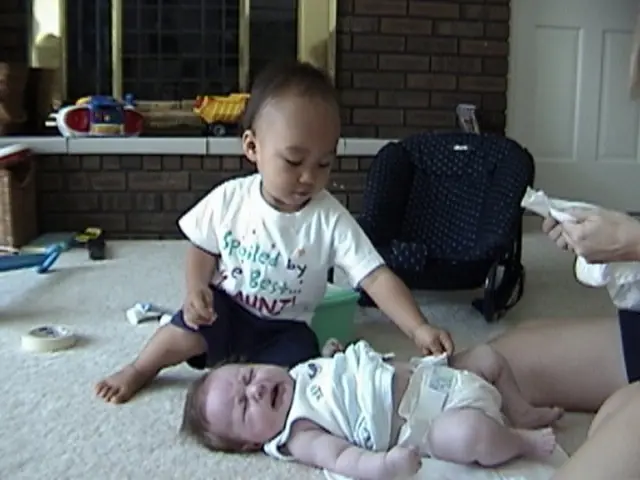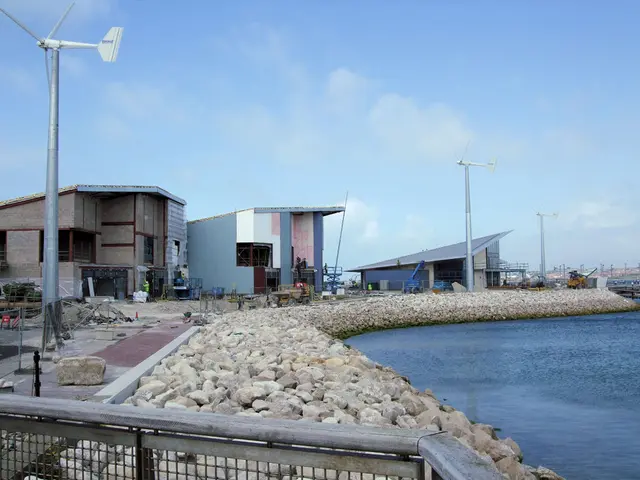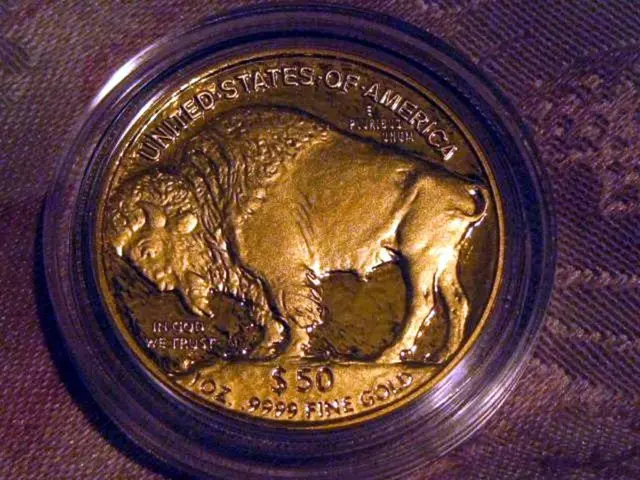Perspective of Previous St. Louis Fed President on Errors in U.S. Central Bank's Tariff Strategy
In a blink of an eye, following President Donald Trump's surprising "Liberation Day" tariff hikes, former St. Louis Fed president Jim Bullard threw a chilling word into the economic sphere: Smoot-Hawley.
Infamous as one of Congress' most disastrous pieces of legislation, the Smoot-Hawley Act of 1930 was a protectionist trade policy that jacked up tariffs on thousands of American imports, sparking a worldwide trade war that historians argue prolonged the Great Depression (apart from economists, you might know only this term from Ben Stein's character in 'Ferris Bueler's Day Off').
Acknowledging the small-fry adjustments of 5% to 7% might cause some ripples, Bullard warned about mind-boggling increases that could skyrocket tariffs to astronomical levels, essentially telling the world, "Better keep your goods off my turf!"
"Big increases in tariffs are the same as saying you can't send that good to my country," Bullard explained in an exclusive interview with our site. "If you're trying to sell goods in another country with crippling tariffs, you won’t even come close to breaking even."
Since those smackdowns (tariffs calculated by examining each country's trade deficit with the U.S.), the 90-day time-out has brought some relief. This pause has given Bullard faith that the Trump administration could nail down a trade deal before driving the U.S. economy into the ditch.
However, Bullard emphasized, "They need to get a move on it!" The White House also eased tariffs on items from China to 30% for yet another 90 days while both nations wage on in their negotiations to dismantle trade barriers, as Trump describes them.
Bullard, now the dean of Purdue University's Daniels School of Business, sat down with our site on April 28 to discuss the state of the U.S. economy, tariffs, and inflation. His former Federal Open Market Committee (FOMC) colleagues were on the brink of announcing, at their May rate-setting meeting, that they were in no rush to cut borrowing costs despite simmering fears of a U.S. recession and slumping consumer sentiment.
Gloomily, Fed policymakers also forecasted that both joblessness and inflation could soon inflate, signaling "stagflation." Fed Chair Jerome Powell expressed that tariffs leading to another inflationary spiral akin to the coronavirus pandemic was one reason policymakers shied away from easing their pole position on early warning signs of distress.
Becoming a voice of dissent on tariffs, one that he'd express to his colleagues if he were still on the rate-setting committee, Bullard took a different stance.
A chat with Jim Bullard on recession risks, tariffs, and inflation
What did you mean by the potential for tariffs to result in a "Smoot-Hawley"-type outcome for the U.S. economy?
"Both countries will keep tariffs too high for trade to happen, or it will only happen in certain goods."
"If a tariff goes from 5% to 7%, it'll cause ripples in the market. But if it soars to 500%, it's basically a "no-go" sign. Most goods offer similar alternatives, which means if you double the price, you’ll lose all your sales."
"Often, this gets jumbled: Small tweaks in tariffs change market demand a bit, but mammoth adjustments could lead to trade restrictions for specific goods."
Which do think will come first: higher inflation or higher unemployment and weaker hiring?
"In 2018-2019, we saw a slowdown in the U.S. economy, primarily from uncertainty about U.S.-China relations. By the summer of 2019, this unease became obvious in the data, and the Fed decreased the policy rate to offset the downturn. I didn't spot much inflation at that time. On the contrary, core PCE [personal consumption expenditures] on an annual basis decreased during the first half of 2019."
"Anxiety about trade rules can jeopardize investment, slow down the economy, and the U.S. economy along with it. The price impacts are comparatively mild, since you can't raise the price on your product without losing customers. With prohibitive tariffs, you wouldn't sell anything at all."
What would you say to your colleagues as they deliberate the trade-offs?
"The real economy is what you should focus on at the Fed. If it pans out as it did in 2019, they could lower the policy rate at their upcoming meetings to compensate for any slowdown. I doubt they’d make such cuts immediately, but if the slowdown actually manifests, they could do it to mitigate the fallout."
"In terms of inflation, it's true that it remains above target. But the latest inflation figures were encouraging, with inflation readings subdued. If this persists through the spring, they'd be closer to 2%."
"However, slower economic growth tends to be associated with lower inflation. So you'd get less inflation than you'd otherwise expect."
Inflation doesn’t appear to be a major concern of yours.
"I've pushed back on the inflation narrative associated with tariffs. That's not what we witnessed in 2018-2019. During that period, inflation actually declined in the first half of 2019, despite being in the thick of the trade war."
"Businesses avoid aggressively hiking their prices during the midst of a trade war because they don't want to lose customers and face the high cost of acquiring new ones. Once a trade war ends, they risk losing customers they might have lost in the heat of the battle."
Given your concerns about tariffs affecting the economy, do you think we might already be in a recession?
"A lot of front-running of tariffs brings in a truckload of imports, which accounts for GDP growth in the first quarter. However, employment markets seem to be holding up quite well. I wouldn't classify us as being in a recession right now, but we'll have to wait and see how the whole trade war shakes out through the second and third quarters and beyond."
How long do you estimate the Fed's interest rate cuts could be delayed?
"At least until the second half of the year. It relies on how the trade war unfolds. A lot of this relies on threats and counter-threats from involved countries. The nature of the game is that neither side fully commits until a deal is signed. That's going to impact the global economy and the U.S. economy for months to come unless deals are struck to reduce some of the uncertainty, allowing big investment decisions to go ahead."
"What you really need is commitments in principle. Most of the technical details can be settled afterwards. I think you could reach a deal fairly swiftly with many of these nations, but they've got to take action."
"Jim Bullard's warning about potential Smoot-Hawley-type outcomes for the economy emphasizes the risk of unmanageable tariff increases that could restrict trade for specific goods, akin to a 'no-go' sign. Such drastic tariff hikes could lead to a loss of sales and market demand, similar to the situation in 2019 when businesses avoided raising prices to prevent losing customers."
"In terms of economic concerns, tariffs seem to have a greater impact on economic growth and investment than on inflation, as businesses are reluctant to raise prices during trade disputes to avoid losing customers and facing high costs of acquiring new ones."




